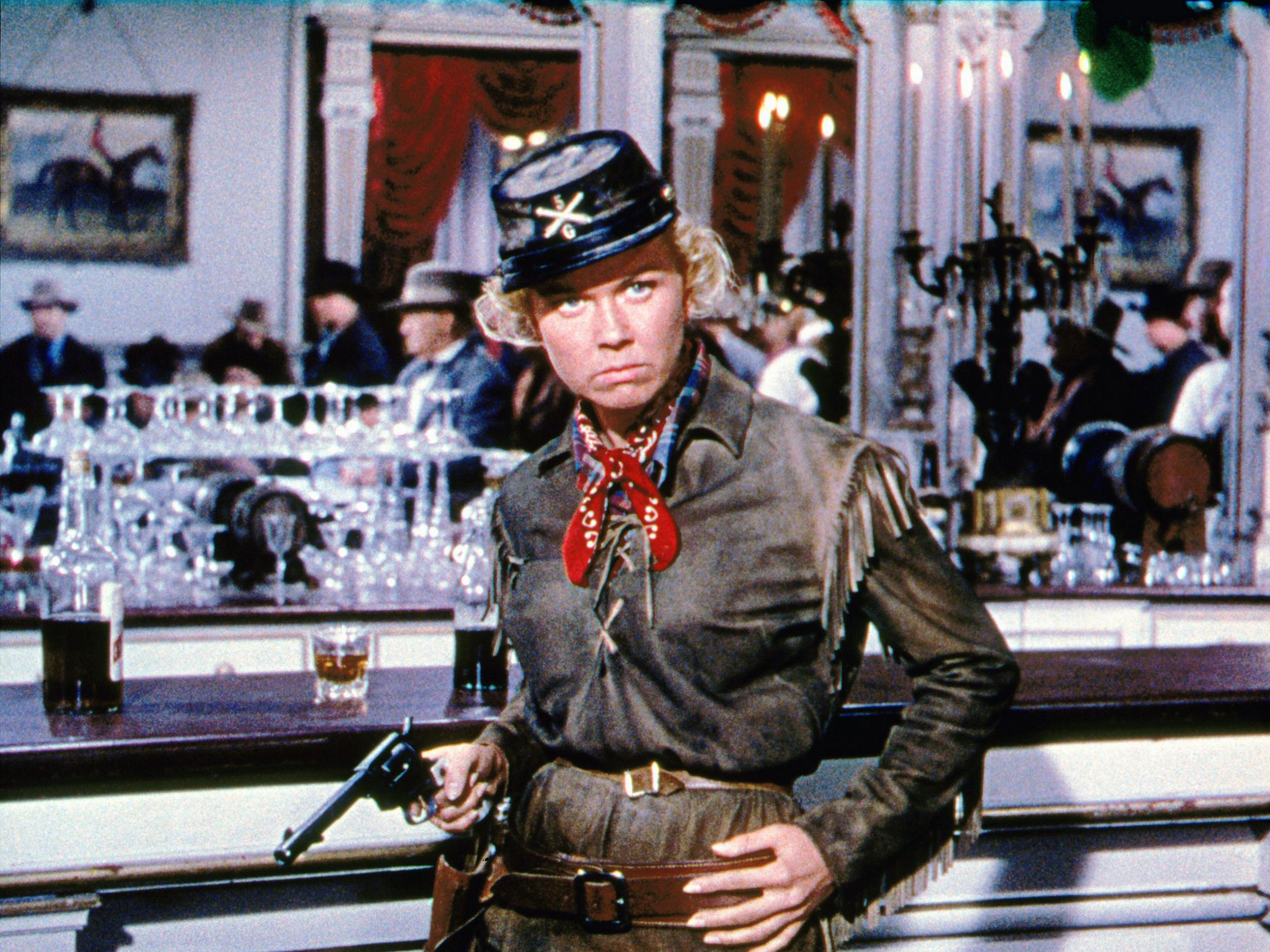Doris Day death: Hollywood legend who starred in Calamity Jane and Pillow Talk dies, aged 97
The Doris Day Animal Foundation announced the news
Your support helps us to tell the story
From reproductive rights to climate change to Big Tech, The Independent is on the ground when the story is developing. Whether it's investigating the financials of Elon Musk's pro-Trump PAC or producing our latest documentary, 'The A Word', which shines a light on the American women fighting for reproductive rights, we know how important it is to parse out the facts from the messaging.
At such a critical moment in US history, we need reporters on the ground. Your donation allows us to keep sending journalists to speak to both sides of the story.
The Independent is trusted by Americans across the entire political spectrum. And unlike many other quality news outlets, we choose not to lock Americans out of our reporting and analysis with paywalls. We believe quality journalism should be available to everyone, paid for by those who can afford it.
Your support makes all the difference.Doris Day, the Hollywood icon best known for her work in the Fifties and Sixties, has died. She was 97 years old.
The Doris Day Animal Foundation said that the actor, singer and activist died earlier this morning at her Carmel Valley, California, home.
The foundation said that she was surrounded by close friends and “had been in excellent physical health for her age, until recently contracting a serious case of pneumonia”.
Day was once one of the biggest female stars in the world, appearing in classic films as Calamity Jane, Pillow Talk and Love Me or Leave Me.
The song “Que Sera Sera”, first performed by Day in Alfred Hitchcock’s The Man Who Knew Too Much, won the 1956 Oscar for Best Original Song and later became the theme to Day’s sitcom The Doris Day Show.
Day was later nominated for Best Supporting Actress at the 1960 Academy Awards for her performance in Pillow Talk alongside Rock Hudson, who she later collaborated with on Lover Come Back and Send Me No Flowers.
Actors from around the world paid tribute to Day, including Luke Evans, who wrote on Twitter: “Goodbye Doris Day, there was only one of you! I have always loved your voice and the beautiful songs you made eternal.”
Fashion designer Stella McCartney wrote: “The one, the only, the woman who inspired so much of what I do... Doris Day I love you, my calamity Jane. An iconic woman who I was hugely honoured to meet and share precious moments with. Rest in peace.”
Born Doris Mary Ann von Kappelhoff in April 1922, Day landed her first professional singing gig at the age of 15. Her first hit, “Sentimental Journey”, was released in 1945 and became an unofficial homecoming song for many Americans who fought in the Second World War.

Watch Apple TV+ free for 7 days
New subscribers only. £8.99/mo. after free trial. Plan auto-renews until cancelled

Watch Apple TV+ free for 7 days
New subscribers only. £8.99/mo. after free trial. Plan auto-renews until cancelled
After hearing Day’s rendition of “Embraceable You”, the songwriters Jule Styne and Sammy Cahn recommended Day to Warner Bros for the leading role in Romance on the High Seas. Day managed to impress director Michael Curtiz and landed the part, making her cinematic debut in 1948.
From there, Day signed a multi-film contract with Warner Bros and starred in its films Calamity Jane, Lucky Me and Young at Heart, the latter with Frank Sinatra. Deciding not to renew the contract, Day scored her most successful film to that date with Love Me or Leave Me in 1955.

The late Fifties and early Sixties brought about her most successful period, with Day starring in three box-office toppers with Hudson. She also collaborated twice with James Garner, the pair staring in The Thrill of It All and Move Over, Darling together.
Despite the string of Hollywood hits, Day found herself in huge amounts of debt after her third husband, Martin Melcher, squandered all her earnings. After he died in 1968, Day was forced to turn to television and starred in The Doris Day Show until 1973.
Day returned to television in 1985 to host 26 episodes of Doris Day’s Best Friends and never again appeared in a film, her last being the 1968 romantic comedy With Six You Get Eggroll. She instead focussed on animal rights and became a welfare activist.
She later became intensely private, last appearing in public 30 years ago to accept an award at the 1989 Golden Globes. Day was given a Presidential Medal of Freedom in 2004, with President George W Bush declaring it “a good day for America when Doris Mary Ann von Kappelhoff of Evanston, Ohio decided to become an entertainer”.

Join our commenting forum
Join thought-provoking conversations, follow other Independent readers and see their replies
Comments